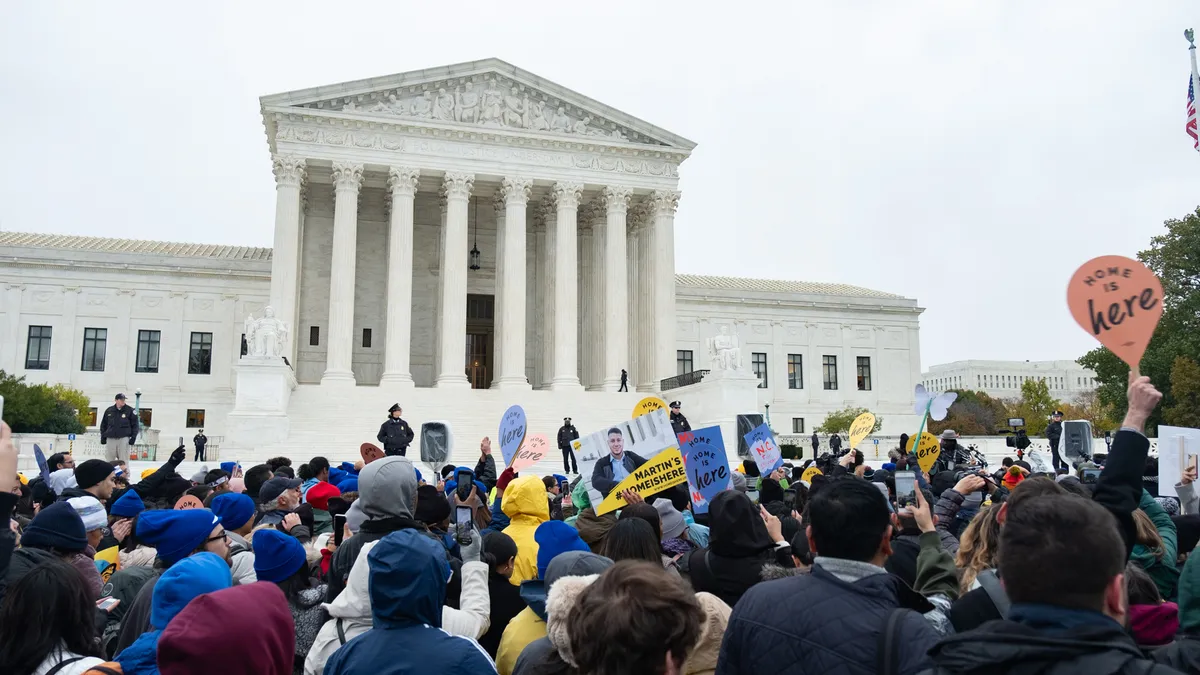Dive Brief:
- A federal judge reinstated the Deferred Action for Childhood Arrivals program, which allows unauthorized immigrants brought to the U.S. as children to work and study in the country.
- The decision by the Eastern District of New York court reverses restrictions the Trump administration placed on the program as part of its efforts to end it.
- Higher education groups have said eliminating DACA would damage the sector's reputation.
Dive Insight:
The Supreme Court ruled in June that the Trump administration failed to provide proper justification for ending the program. But the court left an opening for the administration to try again.
A month later, Acting Homeland Security Secretary Chad Wolf issued a memo saying the department was scaling back the program while it decided how to respond to the ruling. That included rejecting new requests for DACA and cutting the renewal period for existing protections from two years to one.
DACA recipients were also generally prevented from applying to temporarily leave the country for opportunities such as studying abroad.
The memo suggested the department would continue to try terminating the program.
Doing so would imperil the education of more than 200,000 college students, according to a report published earlier this year. About half the unauthorized students in the U.S. have or are eligible for DACA, it found.
But in November, U.S. District Court Judge Nicholas Garaufis invalidated Wolf's memo, stating he lacked legal authority to make the changes.
Garaufis followed up in Friday's ruling to reset DACA's terms to what they were before the Trump administration tried to limit them.
Garaufis also directed the Homeland Security Department to post a notice on its website by Dec. 7 stating, among other things, that it is accepting new DACA requests and that requests granted for one year have been extended to two.
The administration "has assured the court that a public notice along the lines described is forthcoming," the ruling states.
President-elect Joe Biden has promised to reinstate DACA, which was implemented while he was vice president. And he has pledged to give participants access to federal student aid.
However, his administration will meet a more conservative bench than the one that blocked the changes this summer in a 5-4 vote. Late Justice Ruth Bader Ginsburg, who voted in the majority, has been replaced by conservative Justice Amy Coney Barrett, though it's unclear how the latter would decide on a challenge to DACA.














